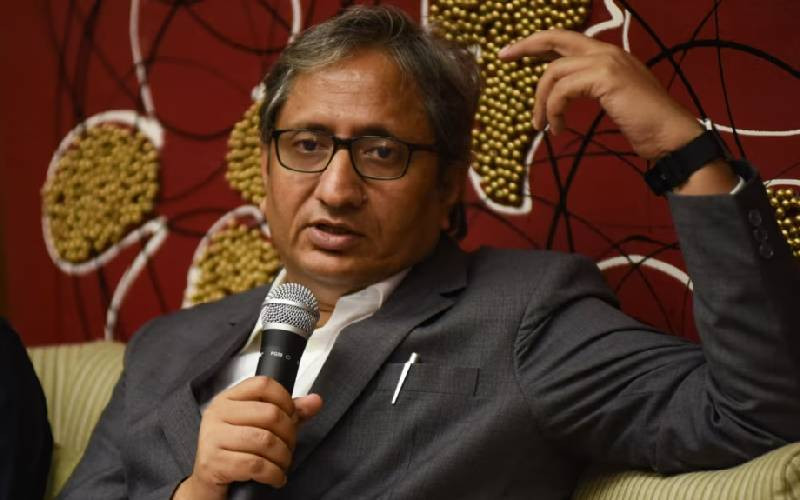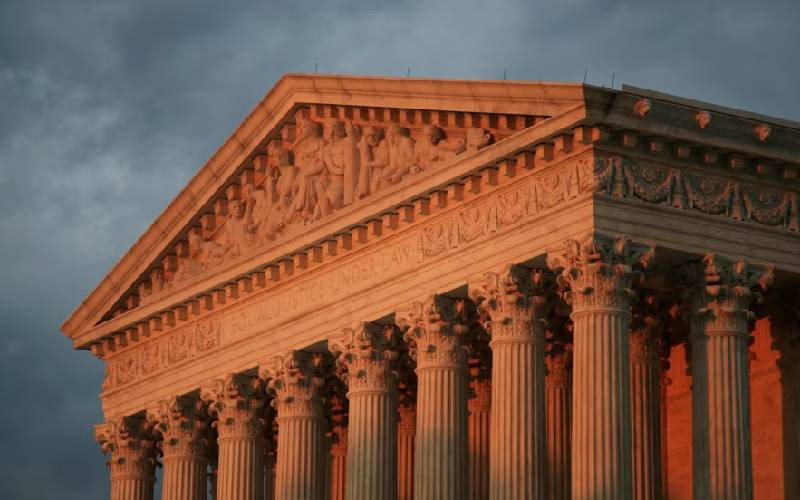By DAVID OHITO
Laws are being drafted and set for enactment by August 27, which could drastically whittle down media freedom during State of emergencies.
The proposals currently being drafted and meant to be part of the amendments to the Kenya Information and Communications Act (1998) which broadly will transition Communications Commission of Kenya into the Communications Authority of Kenya.
The new laws replete with policy guidelines seek to provide for a converged regulatory framework for the ICT sector and include broadcasting, electronic transactions and e-government.
The draft laws seen by The Standard seek to reintroduce State control of broadcasts during State of emergencies and also to control and regulate content on contentious issues, which media practitioners have opposed over the years.
The laws seek to regulate broadcast content and monitor compliance with standards, a function currently being performed by the Media Council of Kenya (MCK). In short, the amendments seek to outlaw the MCK and usurp those roles and assign them to the Communications Authority of Kenya.
Among the drastic laws proposed is a clause barring political party office holders and public and State officers from acquiring broadcasting licenses. It is not clear what happens to such officers already issued with licenses.
The media-gagging proposals come just two months after President Uhuru Kenyatta assured Kenyans and media stakeholders that his administration will be at the forefront of defending media freedom.
On May 2, Uhuru said: “I assure the media fraternity in the country that my Government will support the media to be free, fair and responsible in conducting their business as provided for by our Constitution as well as international conventions to which Kenya is a signatory. Indeed, Kenya has set an example for Africa in terms of non- interference in media freedom. We will uphold this proud reputation.”
Uhuru’s assurance
The President added that as a country and an emerging democracy in Africa, “we will be at the forefront in fighting any form of gagging the media, harassing of journalists, constraining media space and violation of media freedom that are fundamental to good governance.”
But shockingly, the Kenya Information and Communications Act (Amendment Bill) sets the stage for confrontation between the media and the Government as it seeks to meet the August 27, deadline through which the media and ICT sector should be aligned to the Constitution.
ICT Cabinet Secretary Dr Fred Matiang’i and officials from his ministry together with a draft working committee are panel beating the laws, which will seriously impact gains made in the media environment should they be passed in their current forms.
At the core of contest is the row between media owners, journalists and the Government over who should regulate content and set standards.
The contentious clause proposes that: “Up on declaration of a state of emergency under Article 58 of the Constitution, the Authority may give direction to any communication service provider that their entitlement to provide communication has either:
Stay informed. Subscribe to our newsletter
(a) Suspended, either generally or inn relation to specific services, networks or facilities.
The contentious proposal also allows the Communication Authority of Kenya (CAK) to have provisions for delaying and censoring messages and broadcasts and the carrying out of any other purposes which the Authority thinks necessary to facilitate the direction given.
If passed as contained in the draft clauses, then media houses may have to contend with being switched-off air or delaying of live broadcast of events the State may feel uncomfortable about.
During a stakeholder’s workshop at KCB Leadership Centre in Karen on Tuesday, Patrick Quarcko of Radio Africa Group cautioned against duplication of laws, which should fall under the Media Bill.
The chairperson of the working group on the review of ICT Regulatory Framework is Professor Patricia Kameri-Mbote, who is also the Dean School of Law at the University of Nairobi.
It was not immediately clear who the rest of the members of the working group were.
Prof Kameri-Mbote said they were in a retreat to fine tune the final draft which is expected to be handed over to the ICT Cabinet Secretary for on-ward transmission to the Attorney General Professor Githu Muigai’s office for final stages drafting and tooth-combing before being laid before Parliament. A section of media stakeholders complained about the rushing on the laws and argued the invitation to stakeholder forums was skewed and did not factor in the role of key players in the media industry, which will be badly impacted by these laws.
Article 19 Director Henry Maina challenged the drafters to explain the understanding of emergency situations which he explained should be restricted to an attack on the country by foreign enemies, internal revolt against the Government so that the law gets resonance with Article 24 on limitation of rights and fundamental freedoms.
Former Imenti Central MP Gitobu Imanyara described the move as an affront to the media freedom aimed at scuttling the democratic space. “What will happen if the media starts spot lighting corruption scandals in high levels of Government?” he posed.
Of particular worry to the media fraternity is that Parliament has to enact laws by August 27 as required by the Constitution, yet the House is set for recess on August 2.
It means this bill may be rushed through by MPs who have been under criticism from the media for increasing their pay perks.
 The Standard Group Plc is a
multi-media organization with investments in media platforms spanning newspaper
print operations, television, radio broadcasting, digital and online services. The
Standard Group is recognized as a leading multi-media house in Kenya with a key
influence in matters of national and international interest.
The Standard Group Plc is a
multi-media organization with investments in media platforms spanning newspaper
print operations, television, radio broadcasting, digital and online services. The
Standard Group is recognized as a leading multi-media house in Kenya with a key
influence in matters of national and international interest.
 The Standard Group Plc is a
multi-media organization with investments in media platforms spanning newspaper
print operations, television, radio broadcasting, digital and online services. The
Standard Group is recognized as a leading multi-media house in Kenya with a key
influence in matters of national and international interest.
The Standard Group Plc is a
multi-media organization with investments in media platforms spanning newspaper
print operations, television, radio broadcasting, digital and online services. The
Standard Group is recognized as a leading multi-media house in Kenya with a key
influence in matters of national and international interest.









